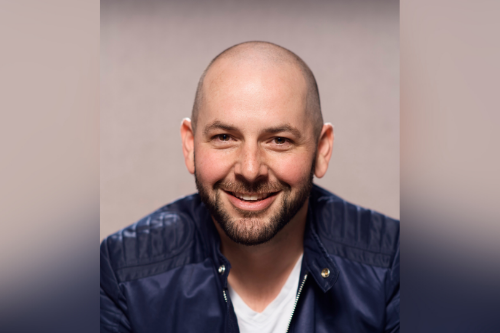

As far as Adam Mitchell (pictured) is concerned, the pandemic hasn’t changed a thing about his business. Except for the parts where it has.
First, the non-changing parts. The president of Whitby, ON-based Mitchell & Whale says his people are fully committed to the multi-year transformation strategy they announced earlier this year, the one where they’re making significant investments in technology, data, and marketing to achieve their goal of becoming a Top 20 national brokerage by 2030.
“We haven’t readjusted,” Mitchell said from his home office. “We’re very much leaning into that plan. That plan is based on a 38% growth trajectory and we’re at 33% right now. So, we need to rev the engine up another five points, but otherwise we’re executing and scaling up well to it.”
As part of the firm’s strategy to hit $1 billion in gross written premiums and grow its workforce to 1,200 employees and become one of Canada’s Top 100 Employers within the next decade, it has decided not to allow the pandemic to alter its plans to grow its current workforce by 30% in 2021.
But what Mitchell is noticing is how the past year or so has changed the way his company – indeed, the whole industry – has approached the whole idea of what their future office environment may look like.
“I don’t believe we’ll ever look like we did a few years ago,” he said. “We’ve hired 30 people under COVID and only two or three of those have any contemplation of office work. That means the majority are contemplating being remote forever.”
And as it turns out, that’s completely fine with him. Because while he has heard and read a lot about what the post-COVID return to the office will look like – specifically, how some firms in the financial sector are pushing to return to what they considered normal as a way of regaining a sense of office camaraderie and corporate culture – his own experience over the past year tells a different story.
“The attitude we’re taking is we’re going to make sure that the culture is supported, that we’re investing in our people and in their lives and their happiness,” he said. “Because if we have strong, mentally nourished people that are being supported and taken care of, then they’re in the best position to do a great job.”
And, he says, there’s a competitive advantage in a company like his being flexible with its working arrangements.
“We were really well positioned (when the pandemic hit) and lucky because I had been banging the drum on this for a long time,” he said. “What you wear, where you sit, how you do it, it doesn’t matter. If the best talent in the industry wants to work from home, well I want the best talent, so they can work at home.”
While he says the impact of the pandemic has left scars that haven’t fully healed yet, he hopes the one lesson that companies take away from it is that you need to be flexible in your business planning and have a little more willingness to accommodate your people – and that it shouldn’t take a once-in-a-century event to make businesses experiment with new ways of doing things.
Meanwhile, though the past year has had its shares of disappointments, the one thing he’s learned from all of this is that when he talks about the importance of taking care of your people’s needs, that “your people” part also includes yourself.
“I think we were all on a giant flywheel (before COVID),” he said.
“I don’t think there were a lot of people in the world who were designing their lives for balance or making family time. I mean, I would get up at 5am, have a squash game, be in the office for 6am to get some work done before my door lined up with a mess, and then come home to kiss the kids and tuck them in. There are some better things about this balance - of getting to have a coffee and some cereal with my kids in the morning.
“It would be a travesty if we just tried to jam the toothpaste back in and go back to the way it went before. There was a lot of scar tissue and mental strain in what we’ve just been through, but there’s also a silver lining. It gave people a moment to pause and think, and maybe try some new things.”
